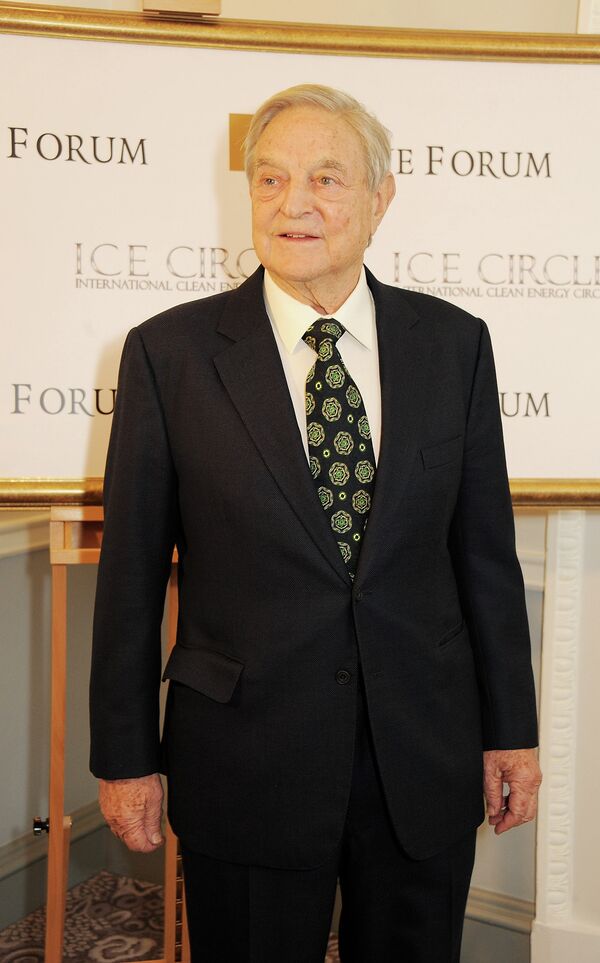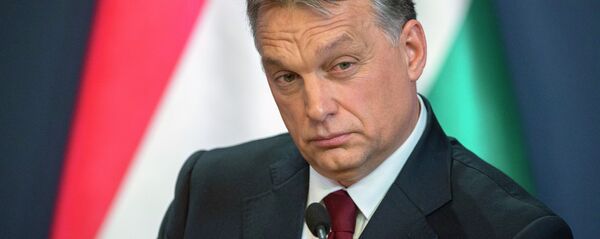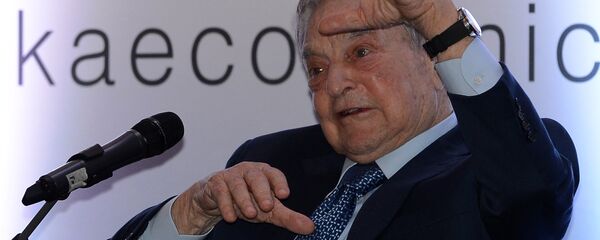The legislation passed on April 4, and inked by Hungarian President Janos Ader, requires foreign accredited universities to provide education services in the countries of their origin and bans them from awarding Hungarian diplomas in the absence of an agreement between Hungary and a country of accreditation.
The Budapest-based CEU is accredited in the United States but does not provide any educational services there. Furthermore, there is no legally binding bilateral agreement between Budapest and Washington, as required by the new Hungarian law.
Commenting on his decision, the Hungarian Prime Minister called attention to the fact that CEU has got an advantage over the other Hungarian universities since its diplomas are accepted in both Hungary and the United States.
"There is competition among universities and it is inexplicable why we should put our own universities at a disadvantage… while securing an unfair advantage for the foreign university," Orban said as quoted by Deutsche Welle.
Responding to his critics, Orban called Soros an "enemy of the euro" who "has destroyed lives of millions of Europeans through his financial speculations."
In his article for RIA Novosti Russian journalist and political pundit Anatoly Vasserman pointed out that Orban's concerns are not unjustified.
"Soros has gone down in the history of the economy with his theory of the relevance of 'Reflexivity' to economics [and capital markets]. That means that when he plays the stock market he doesn't focus on the real situation in the economy in general or in any specific businesses, but only on what people 'think' about these businesses," Vasserman elaborated.
To illustrate his point the Russian political pundit recalled how in 1992 the Hungarian-born billionaire nearly brought the Bank of England to its knees by dumping the pound.
"It is worth remembering [Soros'] famous stock-market trick when he borrowed a huge sum of money (about one billion pounds) and sank the British pound. [The trick] was not based on the fact that at that time the British economy was unstable. It was, of course, unstable, but the reserves of Britain would be enough to cope with this trouble. However, Soros's speculative actions had affected the minds of big stock players. And all of them, seeing that a very large sum had been converted from British pounds to Deutsche marks, believed that the pound would not resist [the pressure]. As a result, they all rushed to convert their assets from pounds to other currencies," Vasserman wrote.
The damage was done and Soros's trick worked. Some say that in the process the American magnate pocketed more than a billion dollars.

"It is clear that such tricks work only in cases where you can clearly predict the state of minds of other stock exchange players or affect it," Vasserman highlighted.
Apparently, therefore, Soros started propagating specific economic and political theories through his NGOs and educational institutions to make the behavior of those indoctrinated predictable, the political pundit wrote.
"People who have been indoctrinated by Soros' theories are ideal assets for his game. These people are predictable and unable to protect their own interests from propaganda fantasies," Vasserman said, "That's why there is growing opposition to [George Soros] in the countries which experienced firsthand the consequences of his policies."
Vasserman recalled that having joined the European Union Hungary was forced to bring many of its industries to a halt.
The crux of the matter is that "the countries that joined the European Union later than the others are forced to abandon those of their industries which compete with manufacturers of member-states that were accepted to the EU earlier," he explained.
According to the political pundit, it is hardly surprising in this context that the European Commission has taken the side of George Soros: Eurocrats are interested in maintaining the inequality in the bloc and "stultifying" the citizens of Central and Eastern Europe.
Meanwhile, on Saturday Orban was summoned to the Presidency of the European People's Party (EPP) "to explain the latest developments related to the Hungarian Higher Education Act and the national consultation 'Let's stop Brussels,'" the EPP press release says.
"The EPP Presidency sent a clear message to Prime Minister Orban and his party, Fidesz, that we will not accept that any basic freedoms are restricted or rule of law is disregarded. This includes academic freedom and the autonomy of universities. The EPP wants the CEU to remain open, deadlines suspended and dialogue with the US to begin," EPP President Joseph Daul's official statement reads.




